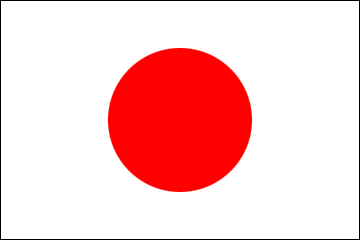Statement by H.E. Ambassador IHARA Junichi, Permanent Representative of Japan to the International Organizations in Geneva on the occasion of the UNHCR Pledging Conference (5 December 2019)
Permanent Representative of Japan
to the International Organizations in Geneva
On the occasion of the UNHCR Pledging Conference
Thursday, 5 December 2019
Thank you, Mr. Chairman.
Madam Deputy High Commissioner,
Distinguished colleagues,
Firstly, I would like to reflect on the passing of Ms. Sadako Ogata in October. I recently joined the High Commissioner and the staff of UNHCR in observing a minute of silence in her honour. This event renewed our recognition of Ms. Ogata’s dedication and great achievements. As Secretary-General Guterres has said, she was indeed a “role model” for all of us. As the High Commissioner has remarked, she was also truly a “visionary leader.” What is important for us now is to share her vision and carry on her legacy.
Under Japan’s budget system, it is not possible to make a concrete pledge for 2020 at this point. I would, however, like to express Japan’s unwavering commitment to continue to support UNHCR.
In 2019, Japan contributed more than 120 million US dollars to UNHCR. We have been raising the ratio of non-earmarked funding in our core contribution each year. In addition to the core contribution, Japan provided emergency assistance in response to the appeals to support refugees and displaced people in Africa and Syria. Japan also provided support to displaced Venezuelans and host communities in Brazil and Columbia as well as to Afghan refugees. Japan will continue to support UNHCR through various schemes in a flexible and prompt manner.
As humanitarian crises become increasingly protracted, it is essential to consider the humanitarian-development nexus, keeping in mind the needs of host communities from the mid- to long-term perspective. For example, in 2019, Japan provided assistance of a total of 73.55 million US dollars for displaced people from Rakhine State, Myanmar. This assistance was composed of both humanitarian elements like healthcare, water and food, and development elements like education and infrastructure.
To further promote the nexus approach, at the upcoming Global Refugee Forum (GRF), Japan is co-organizing a spotlight session on the humanitarian-development-peace nexus in collaboration with UNHCR, UNDP, the World Bank and OECD. I would also like to add that Japan has provided new funding for research on the nexus approach this year to help develop methodology for supporting the transition from humanitarian to development assistance.
At the TICAD7 in August, Japan and UNHCR co-organized a side event to reaffirm the importance of support for refugees and displaced people as well as host communities in Africa, and underline the need for broad cooperation with various actors including those from the private sector.
Japan serves as a co-convener with UNHCR of the Grand Bargain workstream on reducing management costs. To move this discussion forward, Japan recently financed an independent review of individual donor assessment. Japan also provides funding to support the refugee team which will participate in the 2020 Tokyo Olympic and Paralympic Games in cooperation with UNHCR. The team’s participation will send an important message of hope and inclusion.
We would like to take this opportunity to request UNHCR to make the most effective use of donor contributions, to continue to rigorously put in place appropriate follow-up mechanisms, and to provide timely reports on its activities.
I would like to conclude by paying tribute to the High Commissioner and the staff of UNHCR for their dedicated work, often conducted under severe and challenging conditions, to help refugees and displaced people.
Thank you.
